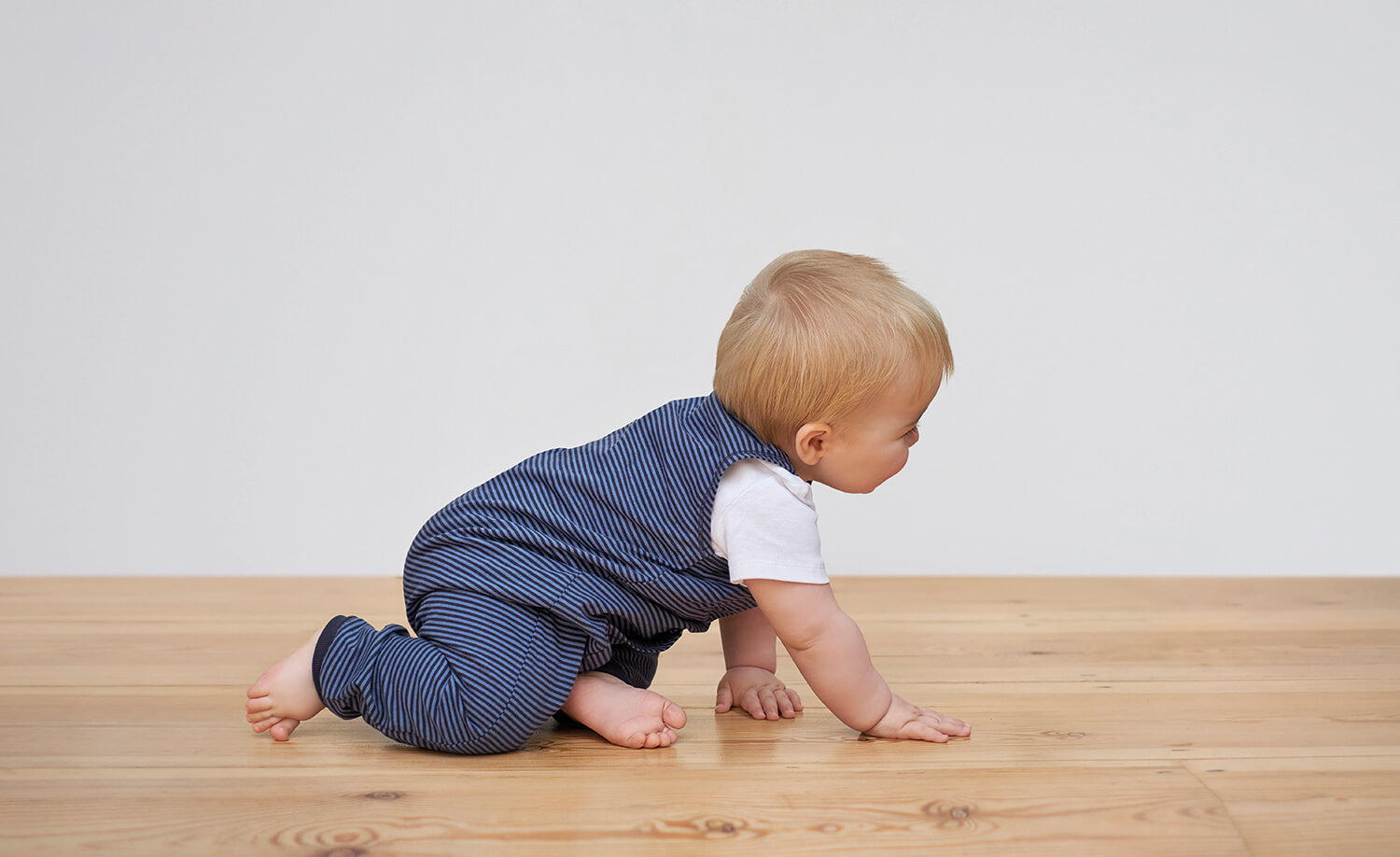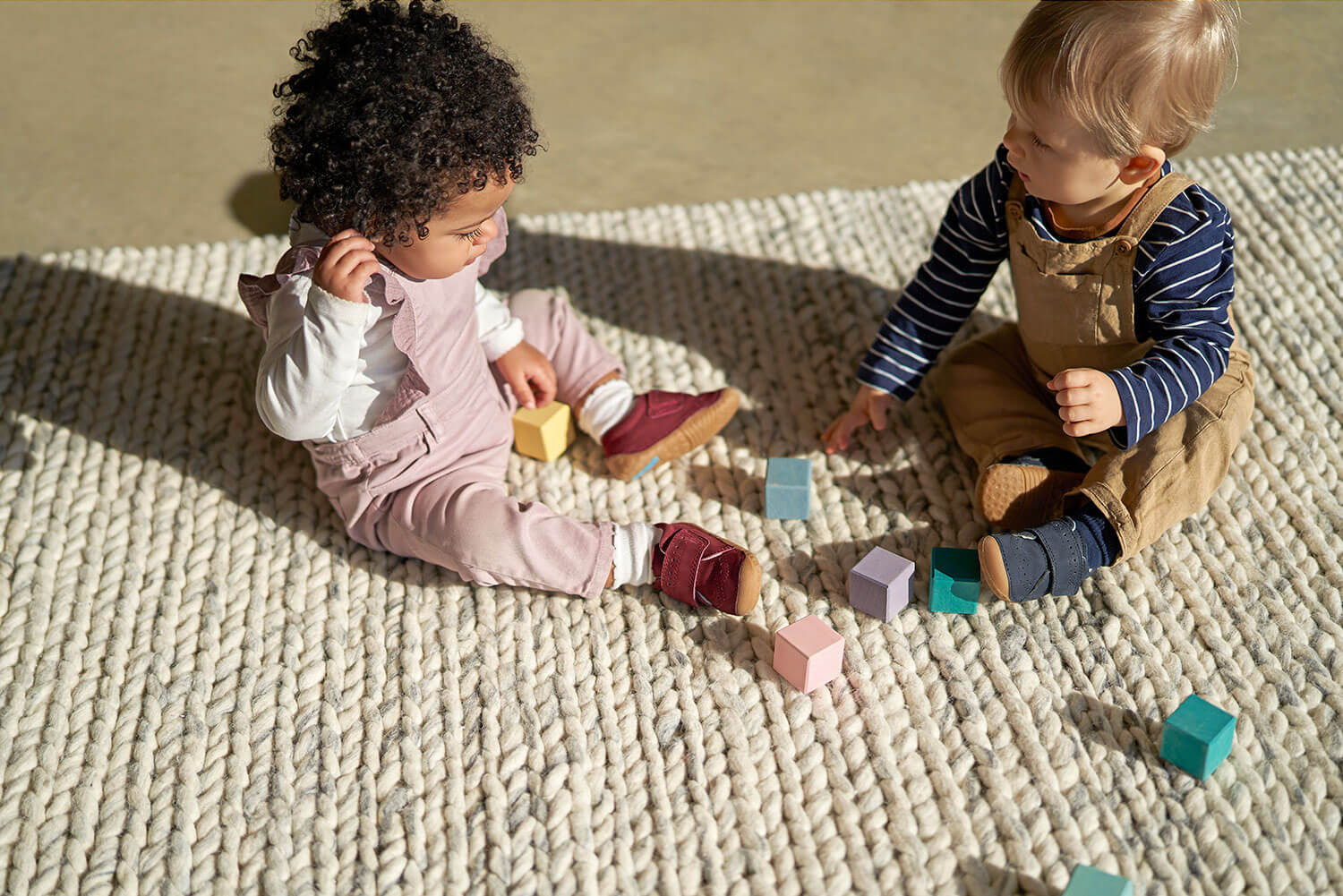The next part of our child development blogs looks at babies. Here you’ll find information on making the right foot care choices for your baby and provide advice on engaging the whole body through related activities suited for their life stage.

Babies feet are a unique structure, at this early stage they are at their most delicate, don’t have a bone like architecture and have no visible arch. They are simply soft cartilage with a chubby appearance which can easily be manipulated by ill-fitting shoes if they are constricted and not relevant for your baby’s current development stage. Even socks that are too tight can damage feet at this delicate stage.
You'll notice some very rapid developments at this stage, particularly in their spines. Your child’s neck will grow strong enough to support their own head and they will learn to roll over and sit on their own. This is preparing their spines to support their body while they are getting ready to start moving around.
When babies start to crawl and shuffle, and pull themselves up to standing, they’re at a new stage of development. They'll hold onto your hands, furniture, and anything else they come across as they start to use their new trunk strength and control as a platform for walking.
Some childcare facilities insist that babies in their care wear foot protection but unless you have to, don't be tempted to put them in shoes just yet as their feet aren't ready for them. Remember too that at this young age, the nerve endings in baby’s feet have hardly developed at all and they may not be able to tell you that their feet are sore or squashed. The best option if necessary is to have a soft protective covering to protect your baby’s feet. A loose-fitting sock with a soft leather bottom is a good example of this.
Firstly, remember that not all babies crawl - some start walking straight away, so don't worry if it doesn't seem to be happening. Either way, this stage is a fascinating time with so much to explore. Babies can get into all kinds of interesting places by shuffling or crawling, and they can get their hands on lots more too (so keep a close eye on them!)
While they can't walk independently, they usually get around with a little help from someone's hands, a piece of furniture or an elder sibling.
You could try some of these pre-walking activities to help your baby develop whilst crawling:

Pre-walking shoes:
Start-Rite has a special range of pre-walkers designed just for this in-between stage, allowing natural movement with the right level of support and protection to their uniquely soft and un-structured feet. Start-rite pre-walkers have the following features:
At this stage it is preferable to be barefoot to enhance the most natural development, however we understand in some situations your baby’s precious feet may need protection.
To ensure your baby has the correct fitting shoes we recommend measuring their feet every 6-8 weeks.
To read our general tips on foot health click HERE